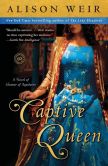
Review of The Book Thief by Markus Zusak
Overview from www.goodreads.com: It is 1939. Nazi Germany. The country is holding its breath. Death has never been busier, and will become busier still.
Liesel Meminger is a foster girl living outside of Munich, who scratches out a meager existence for herself by stealing when she encounters something she can’t resist–books. With the help of her accordion-playing foster father, she learns to read and shares her stolen books with her neighbors during bombing raids as well as with the Jewish man hidden in her basement.
In superbly crafted writing that burns with intensity, award-winning author Markus Zusak, author of I Am the Messenger, has given us one of the most enduring stories of our time.
My Review:
I think it would be something of an understatement to say that The Book Thief is a book like no other. Yes, it covers the Holocaust to some extent and life in Nazi Germany but that life is portrayed from the point of view of the underbelly of that society.
We begin with a small girl who essentially becomes
an orphan and loses her only sibling on the way to live at a new home. This is
where our narrator starts to insert himself in the story. He sees the book
thief when he comes for her brother and is captivated by her but not, I think,
in a romantic way. As we soon discover our narrator is Death himself, aka The
Grim Reaper.
As the years pass, he follows Liesel’s (the book
thief) life in between soul collection and later is able to fill in the gaps of
her story by reading some of the things she has written.
But when we begin, Liesel is mostly illiterate. She comes
to the Hubermanns by car from the train station. Her first car ride ever and
she stubbornly refuses to get out. Finally Hans Hubermann, her new foster
father coxes her out. This would signal the life-long attachment that would
later grow between them while getting close to the wife, Rosa, would be a bit
more challenging.
Life would be hard but they would grow to love one another.
Liesel would learn to read so that she could read her first stolen book. A tome
called “The Gravedigger’s Handbook” that she had taken during her brother’s
funeral for a memento; all that she had left of him.
As time goes on the story gets more complicated as
we add more characters. There is a small blond boy who wants to be Jesse Owens.
The mayor’s wife who provides the book thief with more books to steal. Then
there is the man who arrives in the middle of the night putting all their lives
at risk.
As the tide begins to turn for Nazi Germany, life at
the Hubermann house gets even more and more difficult. Before the changes the
book thief’s new family was more likely to die of malnutrition than bombs
dropping. Now the man who was living in the basement will have to leave and
fend for himself while Liesel and her family wonder how many air raids they can
survive. When Death finds her, what will he say to Liesel and her to him? Can
she even hope to survive?
The movie based on this book is now on video and I
am anxious to finally see it now that I have finished the book. I wonder if
they have changed any major plot points. I hope not. Perhaps I will post a
review of it later, though I might have to reveal some spoilers in my
comparison. In the meantime, I hope you will buy or check this book out at the
library. Happy reading.
Contains:
language,
violence, and book burning





